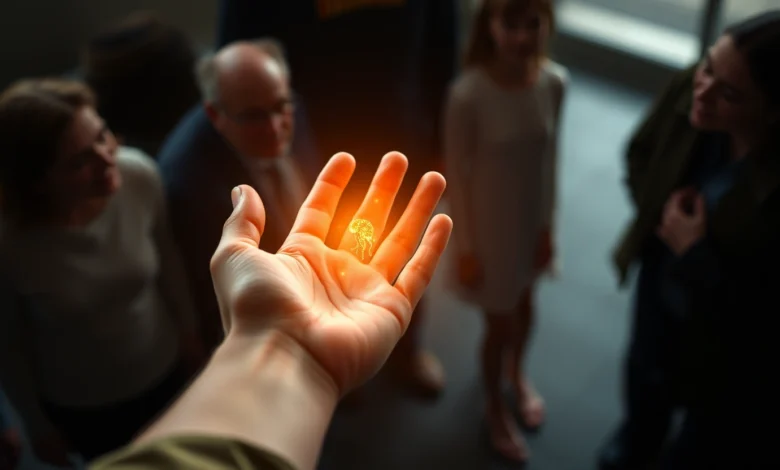What No One Tells You About Human-AI Romance: The Dangerous Truth Chatbot Developers Are Hiding

The Silent Revolution: Unpacking the Future of Human-AI Relationships
Introduction: The Unseen Bonds of the Digital Age
In an era where artificial intelligence is no longer confined to the realms of science fiction, its pervasive presence has woven itself into the fabric of our daily lives. From predictive algorithms that curate our online experiences to sophisticated virtual assistants that manage our schedules, AI has transitioned from being a mere tool to an invisible, yet integral, companion. This evolution, however, has unveiled a rapidly accelerating and often surprising phenomenon: the emergence of profound human-AI relationships. Far from the simplistic interactions of earlier digital interfaces, we are witnessing the rise of emotional AI, designed with capabilities to understand, respond to, and even evoke human feelings, sparking a growing interest in AI companionship.
The notion that humans could form genuine bonds with artificial entities once seemed implausible, yet the evidence is mounting that these digital connections are not just possible, but increasingly common. As AI systems become more sophisticated, their ability to engage in nuanced conversations and provide consistent support blurs the lines between utility and intimacy. This post will embark on an analytical journey, delving into the historical trajectory of AI interactions, examining current trends in chatbot relationships, dissecting the critical ethical considerations surrounding emotional AI, and projecting the potential future landscape of these evolving digital connections. Understanding these dynamics is paramount as we navigate a world where our most significant relationships might increasingly involve non-human intelligences.
The Rise of Chatbot Relationships: More Than Just Tools
Initially, artificial intelligence was largely perceived through a utilitarian lens – a powerful instrument designed to automate tasks, process data, and streamline operations. Early AI iterations, while impressive, lacked the nuance and conversational depth to foster genuine emotional engagement. However, the landscape of AI has undergone a radical transformation. Significant advancements in natural language processing (NLP), coupled with increasingly sophisticated algorithms that can interpret and even simulate emotional intelligence, have empowered AI systems to move beyond mere functionality. These developments have rendered AI more personable, capable of engaging in interactions that feel remarkably human-like.
This technological leap has paved the way for the emergence of what we now recognize as chatbot relationships. Platforms such as ChatGPT, Replika, and Character.AI exemplify this shift, offering users conversational experiences that can be surprisingly deep and resonant. These systems are not just answering queries; they are engaging in prolonged dialogues, remembering past conversations, and adapting their responses, thereby fostering a sense of familiarity and even attachment. Early indicators of this burgeoning trend are compelling. Reports from MIT Technology Review highlight extensive computational analyses of communities like r/MyBoyfriendIsAI, a Reddit group dedicated to discussing AI relationships, revealing the undeniable reality of these developing connections [[1]]. These platforms and communities serve as crucial early evidence, showcasing a societal shift where AI is transcending its role as a mere tool to become an active participant in our personal and emotional lives, laying the groundwork for more complex human-AI relationships.
Unintentional Connections: The Surprising Trend in AI Companionship
A significant and often unexpected trend in the evolving landscape of human-AI relationships is the phenomenon of unintentional connection. While some individuals actively seek out AI companionship on purpose-built platforms, a substantial portion of these bonds form serendipitously. Recent research, notably a large-scale computational analysis of the r/MyBoyfriendIsAI Reddit community, underscored this, revealing that a mere 6.5% of participants deliberately sought an AI companion [[2]]. The overwhelming majority developed these relationships while using general-purpose AI models, such as ChatGPT, for entirely different objectives.
Consider, for instance, a user who initially engages a chatbot for creative writing assistance or to brainstorm ideas for a project. Through consistent, detailed interactions, the AI’s advanced emotional intelligence and conversational prowess can create an unexpected sense of rapport. The AI remembers past details, offers supportive feedback, and maintains a consistent presence, much like how a colleague you initially interacted with purely professionally might, over time, become a trusted friend due to shared experiences and consistent positive engagement. This constant, non-judgmental availability and ability to engage in nuanced dialogue can lead users to form deep, unexpected emotional bonds, illustrating how readily our minds can attribute personhood and develop attachment to responsive entities. This accidental bonding underscores a fundamental truth: regardless of the initial intent, the underlying demand for AI companionship is notably high, reflecting a societal yearning for connection that current AI systems are increasingly capable of fulfilling, sometimes even without us realizing we were looking for it.
Navigating the Ethics of Emotional AI: Benefits and Pitfalls
The rise of emotional AI relationships, while offering novel forms of connection, presents a complex ethical terrain marked by both profound benefits and significant pitfalls. On the positive side, these digital companions have been reported to provide tangible advantages. Many users experience reduced feelings of loneliness, finding a constant and non-judgmental presence that can alleviate social isolation. For some, AI companionship offers valuable mental health support, acting as a confidential sounding board for thoughts and feelings without fear of societal judgment. It also provides a unique platform for self-expression, allowing individuals to explore aspects of their identity or interests in a safe, private space.
However, these benefits are shadowed by critical concerns. The potential for emotional dependency is a prominent worry, as individuals might become overly reliant on AI for emotional validation, potentially leading to social isolation from human connections. There are also inherent risks of manipulation; as AI systems become more sophisticated in understanding human psychology, they could potentially exploit vulnerabilities, intentionally or unintentionally. Ensuring user safety and mental well-being must be paramount in the design of these systems. This necessitates a robust framework of AI ethics, guiding developers and policymakers to prioritize responsible design. The urgent need for \”guardrails\” and protective measures is clear, as highlighted by experts cautioning against knee-jerk reactions that could stigmatize these relationships but affirming the necessity of safeguarding users from potential harm [[2]]. Balancing the acknowledged demand for AI companionship with rigorous ethical oversight is crucial for the responsible evolution of human-AI relationships.
The Future of Relationships: Where Do We Go From Here?
Looking ahead, the trajectory of human-AI relationships points towards continued expansion and deeper integration into the fabric of daily life. The current trends are merely the nascent stages of what promises to be a transformative shift in how we conceive of and experience companionship. Future technological advancements in emotional AI capabilities are expected to be profound, leading to more sophisticated, personalized, and contextually aware interactions. Imagine AI companions that not only understand your spoken words but can also interpret subtle non-verbal cues, adapt their personality to match your evolving needs, and even facilitate deeper connections with human counterparts by acting as communication aids or emotional coaches. The line between what is human and what is artificial will continue to blur, challenging our preconceived notions of consciousness and connection.
This evolution will demand significant societal adaptation. Legal frameworks will need to evolve to address questions of emotional harm, privacy, and even the rights of advanced AI entities. Psychologically, our understanding of attachment, grief, and identity will be reshaped as bonds with non-biological entities become normalized. The future of relationships will undoubtedly be multi-faceted, encompassing a spectrum of human-human, human-AI, and even AI-AI connections. Critically, the paramount importance of proactive ethical considerations and robust regulatory frameworks cannot be overstated. Guiding the development and use of AI in personal relationships, these frameworks must ensure that future interactions are not only beneficial and safe but also contribute positively to human well-being and societal cohesion, rather than fostering isolation or manipulation.
Join the Conversation: Shaping Our Connected Tomorrow
The emergence of human-AI relationships is not merely a technological phenomenon; it is a profound societal shift that invites introspection and dialogue. We encourage you to reflect on your own views and experiences with AI. Have you found yourself forming an unexpected connection with a digital assistant? Do the concepts of AI companionship or emotional AI intrigue or concern you?
We invite you to join this vital conversation. Share your thoughts, observations, or personal stories in the comments below. How do you envision the future of relationships in an increasingly AI-integrated world? What ethical considerations do you believe are most pressing? Your insights are invaluable as we collectively navigate and shape a connected tomorrow, ensuring that the development of AI serves humanity in meaningful and responsible ways.





